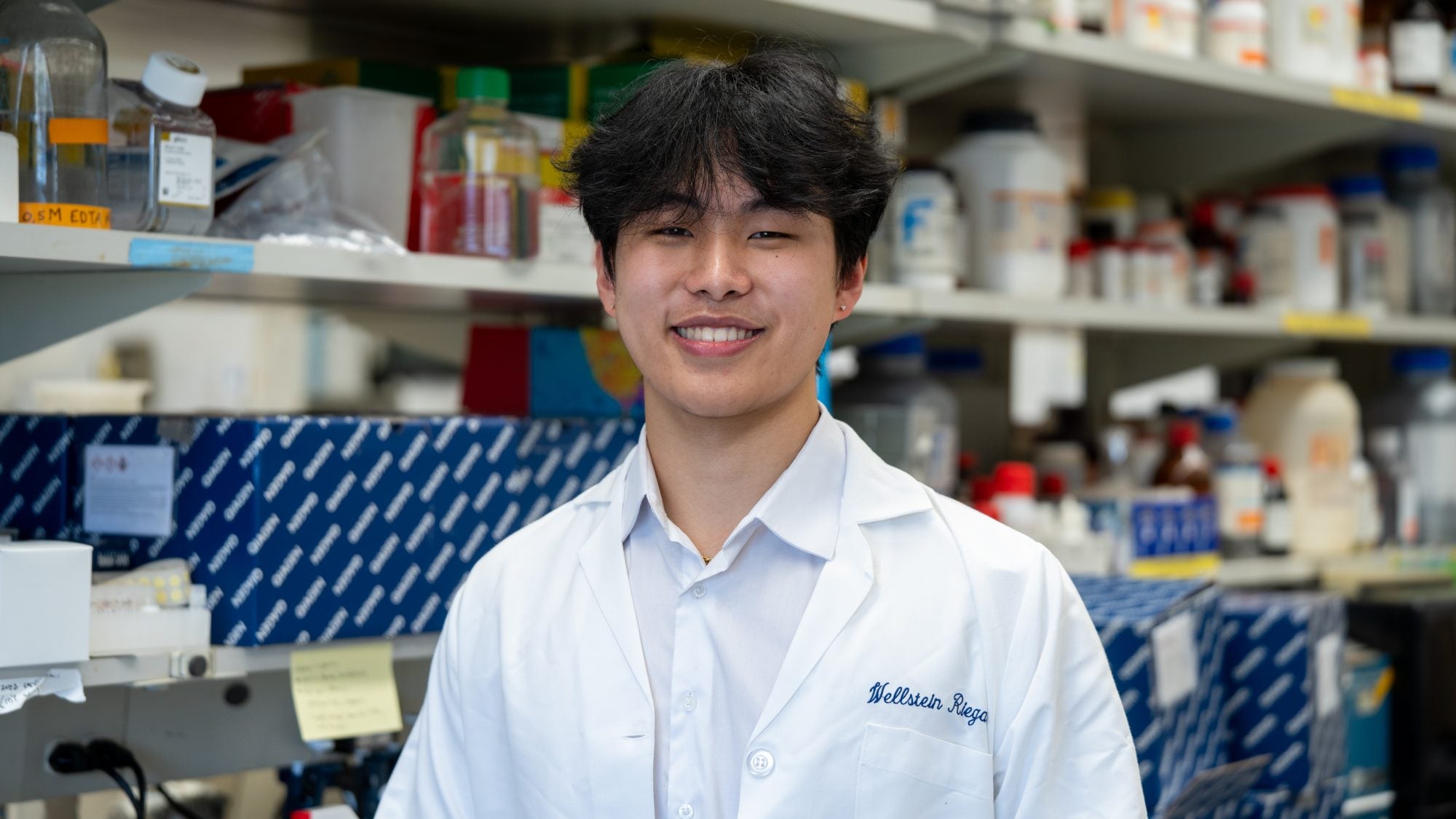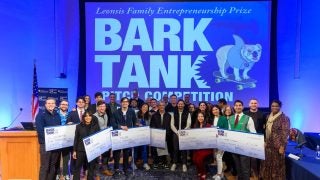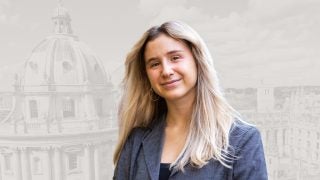Harry Sun (C’26), a biology major in the College of Arts & Sciences, was named a 2025 Goldwater Scholar, a prestigious national award for the next generation of scientists, researchers and engineers.
Established by Congress in 1986, the Goldwater Scholarship recognizes sophomores and juniors in science, technology, engineering and math. Sun was one of 441 recipients out of a pool of over 1,300 nominated applicants. Each Goldwater Scholar will receive up to $7,500 per academic year.
“The Goldwater Scholarship recognizes research excellence at the undergraduate level, while celebrating transformative faculty mentorship. Harry’s commitment to research has flourished through meaningful experiences at Georgetown, the NIH and UConn,” said Bill Cessato, deputy director of the Center for Research & Fellowships.
At Georgetown, Sun researches immunology in Dr. Anton Wellstein’s lab, where he has contributed to projects such as liquid biopsy analysis in cancer patients. After graduating, he plans to pursue an M.D./Ph.D. in immunology — a career path that was cemented after a family challenge.
Research That Became Urgent
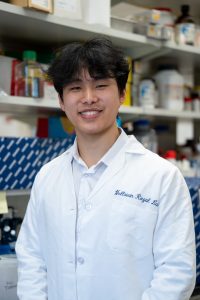
During his first year at Georgetown, Sun was studying biology and volunteering at Georgetown Lombardi Comprehensive Cancer Center, where he wrote cards and folded origami cranes for cancer patients as part of a student organization.
At the end of his first semester, he learned one of his family members had been diagnosed with lung cancer.
“I felt a bit lost. I felt like all my previous stressors, like my academics, became significantly overshadowed by this news, and there was nothing else I could focus on at the time,” he said.
Over time, the close-up view of cancer made him sharpen his focus on cancer research.
The summer after his first year, he began working in a lab at UConn Health, researching neuroimmunology and cancer biology. That fall, he joined the lab of Dr. Anton Wellstein, professor of oncology and pharmacology at Georgetown’s School of Medicine and a member of the Lombardi Comprehensive Cancer Center. He started examining the role of aging and cancer immunotherapy, which took on new weight in light of the personal news.
“Each experiment and data point soon became more than an abstract scientific pursuit,” he wrote in his application. “Each one represented a potential step forward in understanding the complexities of a disease affecting my family and others.”
Sun contributed to a research paper that was published in 2024 in the International Journal of Molecular Sciences. In the manuscript, he highlighted the underrepresentation of elderly patients in clinical trials and conflicting findings reported by current studies.
In the process, Sun found the experience cemented his goal to pursue basic science research to unlock new understandings of how cancer interacts with the nervous and immune systems.
“An M.D./Ph.D. will train me to not only discover novel mechanisms of disease but also help me transform these discoveries into clinical trials, amplifying the future impact of the research,” he said.
In January, Sun sought out an independent research project at the Jin Lab in the National Institute of Allergy and Infectious Diseases, a part of the National Institutes of Health (NIH), continuing his studies of neuroimmunology.
“Orchestrating a project with a NIH investigator is no small feat as an undergraduate at Georgetown,” said Dr. Daniel Isaac, biology program manager and professor of the practice at Georgetown, who is his departmental mentor for the project. “Harry is among our very best biology majors, and I am certain he will accomplish tremendous things as a Goldwater Scholar.”
Encouraging Future Scientists
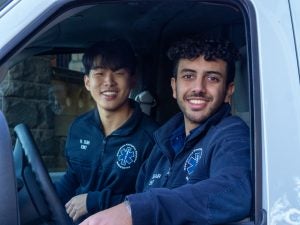
In addition to his work in laboratories, Sun has stayed active in campus life. He has worked with the Georgetown Emergency Response Medical Service and served as the director of purchasing for The Corp, a student-run organization that operates coffee shops and convenience stores on campus.
Sun has also volunteered for CURA Georgetown, a pre-orientation program for first-year students who want to pursue a career in health care. Through the program, he mentored incoming first-year and transfer students, facilitated workshops on social justice and health inequities, and coordinated volunteering at local nonprofits.
This semester, he is furthering his research skills in NIH’s Jin Lab, learning new techniques involving preclinical experiments and confocal microscopy. He plans to return to the UConn Health Srivastava Lab this summer to continue his projects in neuroimmunology and cancer biology.
“The Goldwater Scholarship will not only provide me funding for research and education but also connect me with a diverse and inspiring community of researchers, from whom I am excited to learn,” he said.
